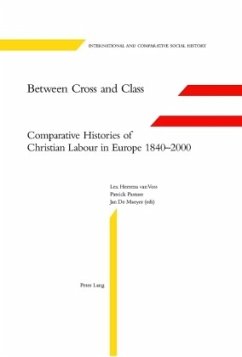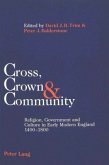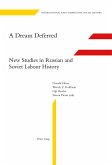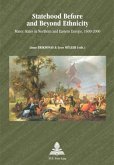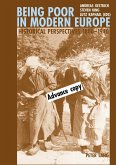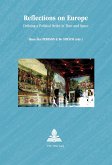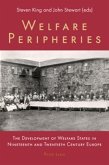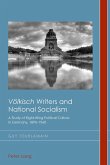In the late nineteenth century in a number of continental European countries Christian associations of workers arose: Christian trade unions, workers' cooperatives, political leagues, workers' youth movements and cultural associations, sometimes separately for men and women. In some countries they formed a unified Christian labour movement, which sometimes also belonged to a broader Christian subculture or pillar, encompassing all social classes.
In traditional labour history Christian workers' organizations were solely represented as dividing the working class and weakening the class struggle. However, from the 1980s onwards a considerable amount of studies have been devoted to Christian workers' organizations that adopted a more nuanced approach. This book takes stock of this new historiography. To broaden the analysis, each contribution compares the development in at least two countries, thus generating new comparative insights.
This volume assesses the development of Christian workers' organizations in Europe from a broad historical and comparative perspective. The contributions focus on the collective identity of the Christian workers' organization, their denominational and working-class allegiances and how these are expressed in ideology, organization and practice. Among the themes discussed are relations with churches and Christian Democracy, secularization, the development of the Welfare State, industrial relations and the contribution to working-class culture.
This volume is the result of a joint intellectual enterprise of the International Institute of Social History (IISG) in Amsterdam (Netherlands) and a group of scholars linked to the KADOC - Documentation and Research Centre for Religion, Culture and Society of the KU Leuven (Catholic University Leuven-Belgium).
In traditional labour history Christian workers' organizations were solely represented as dividing the working class and weakening the class struggle. However, from the 1980s onwards a considerable amount of studies have been devoted to Christian workers' organizations that adopted a more nuanced approach. This book takes stock of this new historiography. To broaden the analysis, each contribution compares the development in at least two countries, thus generating new comparative insights.
This volume assesses the development of Christian workers' organizations in Europe from a broad historical and comparative perspective. The contributions focus on the collective identity of the Christian workers' organization, their denominational and working-class allegiances and how these are expressed in ideology, organization and practice. Among the themes discussed are relations with churches and Christian Democracy, secularization, the development of the Welfare State, industrial relations and the contribution to working-class culture.
This volume is the result of a joint intellectual enterprise of the International Institute of Social History (IISG) in Amsterdam (Netherlands) and a group of scholars linked to the KADOC - Documentation and Research Centre for Religion, Culture and Society of the KU Leuven (Catholic University Leuven-Belgium).

